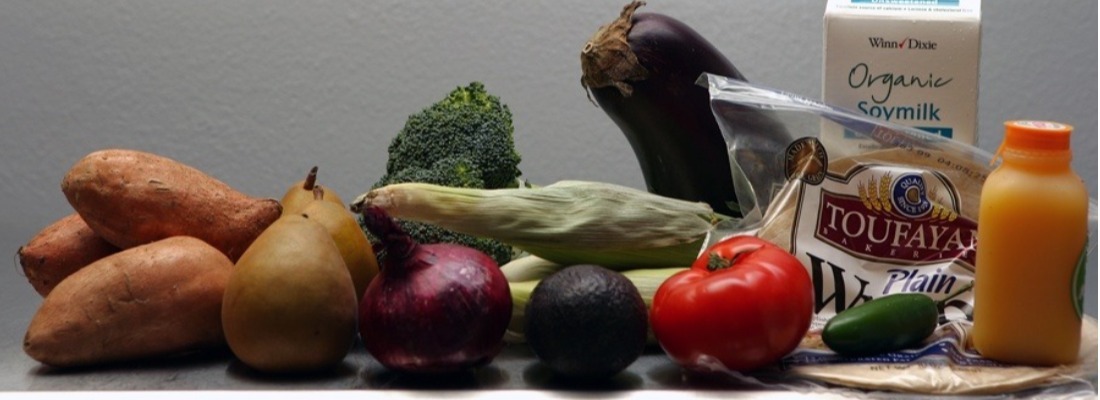The general population overspend on groceries all the time. They purchase items that they do not need and are ignorant of sale items that are not members of their usual preferred brands. The waste and over expenditure is completely unnecessary when with just a little time dedicated to pre-planning a shopping list can not only save money, but perhaps improve the quality of your purchases. In this article, we are exploring the ways to save money when you hit the shops for your weekly grocery shopping.
All at Once
Write a list comprising all that you need over a certain time period, such as a week or a month, and when you go to the supermarket, buy it all at once. By doing so, you will substantially reduce the number of impulse buys that you make as opposed to if you were to visit the store on a more frequent basis. Sadly, it’s these impulse buys that are the difference between saving and not, in the supermarket.
According to data from the Office of National Statistics, the average UK family of four (Two Adults and Two Children spends £7,924 per year on food. This equates to a weekly budget on £152.40. I know from personal experience that my weekly food bill can be substantially more if I’ve bought spur-of-the-moment purchases such as fresh meat, seafood or anything else that has caught me eye that day.
Buy in Bulk
If you really want to save money on your food bill, think about buying bulk. Supermarkets often offer a variety of deals such as buy one get one free or buy two and get second half price, on a whole range of both perishable items and toiletries. Personally I use Costco which costs £33.60 for an individual pass, or £15 card per year for their online store only to save money buying in bulk. Over the last year, I have saved 50% on my toiletries and cleaning equipment just by buying in bulk.
Remember, shops like Costco and Makro require you to buy in bulk for a discount, but you don’t have to use it all yourself. It very easy to get together with friends and family to place a large order for toiletries or cleaning equipment and share them out between all of you. If there are deals to be had on perishable items such as bread, do not forget that you can freeze these products and make use of them at a later date.
The Supermarket Loyalty Card
The majority of large supermarkets offer their own loyalty card that awards you points for every item you buy. Once you have accumulated a certain level of points, you can use them to receive discounts on items. Probably the best loyalty card program in the UK today is Salisbury’s Nector card. Like most, it works by scanning your card at checkout, allowing you to build up points over time. For each £1 you spend either in the supermarket or buying one-litre of fuel, you’ll earn one point.
Spending those saved point is equally easy, but I would recommend that you do the maths before your spend. With nector points, every point you collect is worth half a penny, so 500 points is worth £2.50. That said, you can often find a selection of deals that work out better. Currently Nectar points are doing a deal with Pizza Hut where 1,000 points get you a free £13 pizza.
Brand Loyalty – Be Flexible
You may like a certain brand, or perhaps you subconsciously show brand loyalty through purchasing the same item over the years without trying others, even if the alternatives are on offer for a significantly less. Unless you are confident that you undoubtedly receive good quality and value for money from your favourite product, there is no harm in trying the cheaper alternatives.
Buy Vegetables at the Market
One of the best places to buy fresh fruit and vegetables is at your local farmers market. Not only will you be supporting your local farming community as opposed to large conglomerates, but you will benefit from purchasing both the freshest and cheapest produce. You may also be able to obtain huge discounts if you shop toward the end of the day.
Buy Frozen
Across the UK we throw away around 20% of everything we buy because it goes out of date. For the average household spending £152.40 a week on food, £30 of food hits the bin each week. If you saved this £30 a week, you’d be saving £1,560 per year which if invested and grown by 10% each year, your fund would be worth £93,816 after 20 years or a massive £269,441 after 30 years.

One way to save is to buy frozen food. Not only does frozen food last longer, but it also cost substantially less. Sainbury’s where I do a lot of my shopping has stonebaked pepperoni frosen pizzas that cost £1.22, however the exact same pizza fresh would cost more than double at £3.72.
Save Coupons
You will often find various coupons in newspapers and magazines which you can cut out and use. Of course, it is ideal if you find them for the supermarket you usually go to, but if you find great deals elsewhere, you should consider going to that store as well.
Best Deals
The best deals usually fall after a major holiday such as summer, Easter or Christmas. For example, chocolate is a lot cheaper in the days following Easter than it is at any other time of the year. You can even find great deals at certain times of the day with supermarkets tending to drop the price on selected items – usually perishable ones – a few hours before they close.
Remember, deals don’t just have to be on food items. In the example above, Nectar Points is probably the best loyalty card. Each year they have a Double UP event where your points are worth double. If you have spend the national average for a four-person family of £7,924 in sainburys and filled up your car, you could easily have 10,000 points that are now worth £100.
Final Thoughts
For the majority of us, retiring a millionaire is a distant thought. The problem is that most people cannot see how they’re going to get there, but actually it’s very easy and starts with the small things such as food budgeting.
We all like the finer things in life, but there is no point in paying more for something that you cannot tell the difference. Yesterday I bought a kilo of fresh ships costly nearly £30. They were on special offer, and I thought I was getting a great deal. The problem, I could not taste the difference between the fresh and the frozen. As a consequence, personally, that was £30 down the drain.
As we saw above, saving £1,560 per year (£30 per week) which if invested and grown by 10% each year, your fund would be worth £93,816 after 20 years or a massive £269,441 after 30 years.








